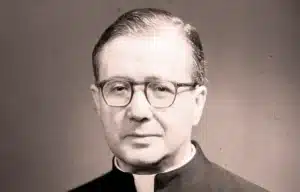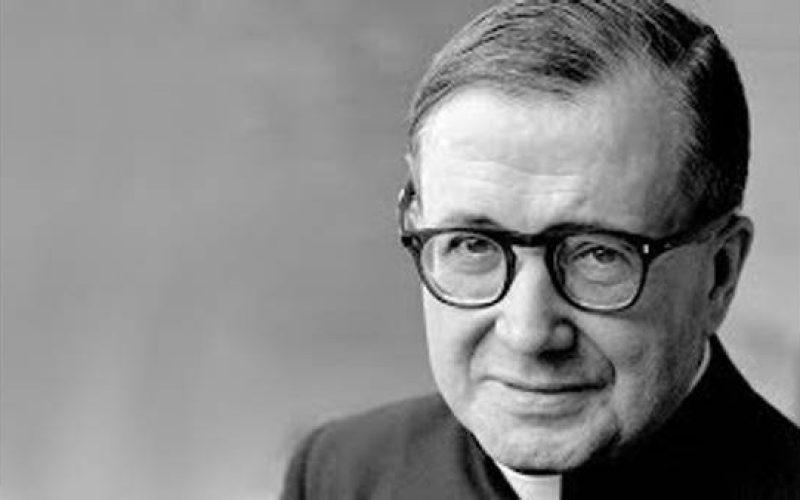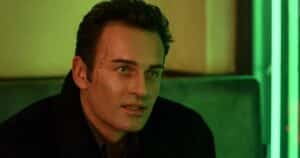Josemaría Escrivá was born on January 9, 1902, and died on June 26, 1975. He was a Spanish Catholic priest who founded Opus Dei, an organization of laypeople and priests dedicated to the principle of everyday holiness, so he has had a lasting impact. He was canonized, or made a saint, in 2002 by Pope John Paul II, himself a saint. Josemaría Escrivá gained a doctorate in civil law at the Complutense University of Madrid and a doctorate in theology at the Lateran University in Rome. Escrivá’s best-known publication is The Way, which has been translated into forty-three languages and has sold several million copies. Josemaría Escrivá has his detractors. Are you a supporter or a critic?
Josemaría Escrivá Biography

Josemaría Escrivá was born on January 9 1902, in Huesca, Spain. He was the second of six children and the first of two sons. Young Josemaría Escrivá first felt that “he had been chosen for something,” it is reported, when he saw footprints left in the snow by a monk walking barefoot. With his father’s blessing, Josemaría Escrivá prepared to become a priest of the Catholic Church. He was ordained as a deacon on Saturday, 20 December 1924. He was ordained a priest, also in Zaragoza, on Saturday, March 28, 1925.
A prayerful retreat helped him to discern more definitely what he considered to be God’s will for him, and, on October 2, 1928, he “saw” Opus Dei (in English: Work of God), a way by which Catholics might learn to sanctify themselves by their secular work. Josemaría Escrivá founded Opus Dei in 1928, and Pope Pius XII gave it final approval in 1950.
In 1950, Josemaría Escrivá was appointed an Honorary Domestic Prelate by Pope Pius XII, which allowed him to use the title of Monsignor. In 1955, he received a doctorate of theology from the Pontifical Lateran University in Rome. He was a consultor to two Vatican congregations and an honorary member of the Pontifical Academy of Theology. The Second Vatican Council (1962–65) confirmed the importance of the universal call to holiness, the role of the laity, and the Mass as the basis of Christian life.
During the Spanish Civil War, Escrivá fled from Madrid, which was controlled by the anti-clerical Republicans, via Andorra and France, to the city of Burgos, which was the headquarters of General Francisco Franco’s Nationalist forces. According to some accounts, at the age of two, he suffered from severe epilepsy that the doctors expected him to die. Many saints have early health challenges.
Josemaría Escrivá is controversial. On the eve of Escrivá’s beatification in 1992, the Los Angeles Times described it as “perhaps the most contentious beatification in modern times.” Critics have argued that the process was plagued by irregularities, and that Josemaría Escrivá supported Hitler, collaboration by members of Opus Dei with right-wing political causes (especially during General Francisco Franco’s dictatorship in Spain), Escrivá’s request for the rehabilitation in his favour of an aristocratic title and allegations that he maintained bad relations with other Catholic officials, of whom he could be very critical in private.
However, endorsers refer to Rafael Pérez, an Augustinian priest who presided over the tribunal in Madrid for Escrivá’s cause, as “one of the best experts” on canonization. Pérez stated that the process was fast because Escrivá’s figure is “of universal importance,” the Postulators “knew what they were doing,” and, in 2002, he was canonized. Josemaría Escrivá died in 1973.
Conclusion
Pope John Paul I, Pope John Paul II, Pope Benedict XVI, Pope Francis, Óscar Romero, and many other Catholic leaders have endorsed Josemaría Escrivá’s teaching about the universal call to holiness, the role of the laity, and the sanctifying effect of ordinary work. According to John Allen, a Vatican expert, among Catholics, Josemaría Escrivá is “reviled by some and venerated by millions more.” There is no question he is a person who has had an outsized effect and is worth knowing about.








